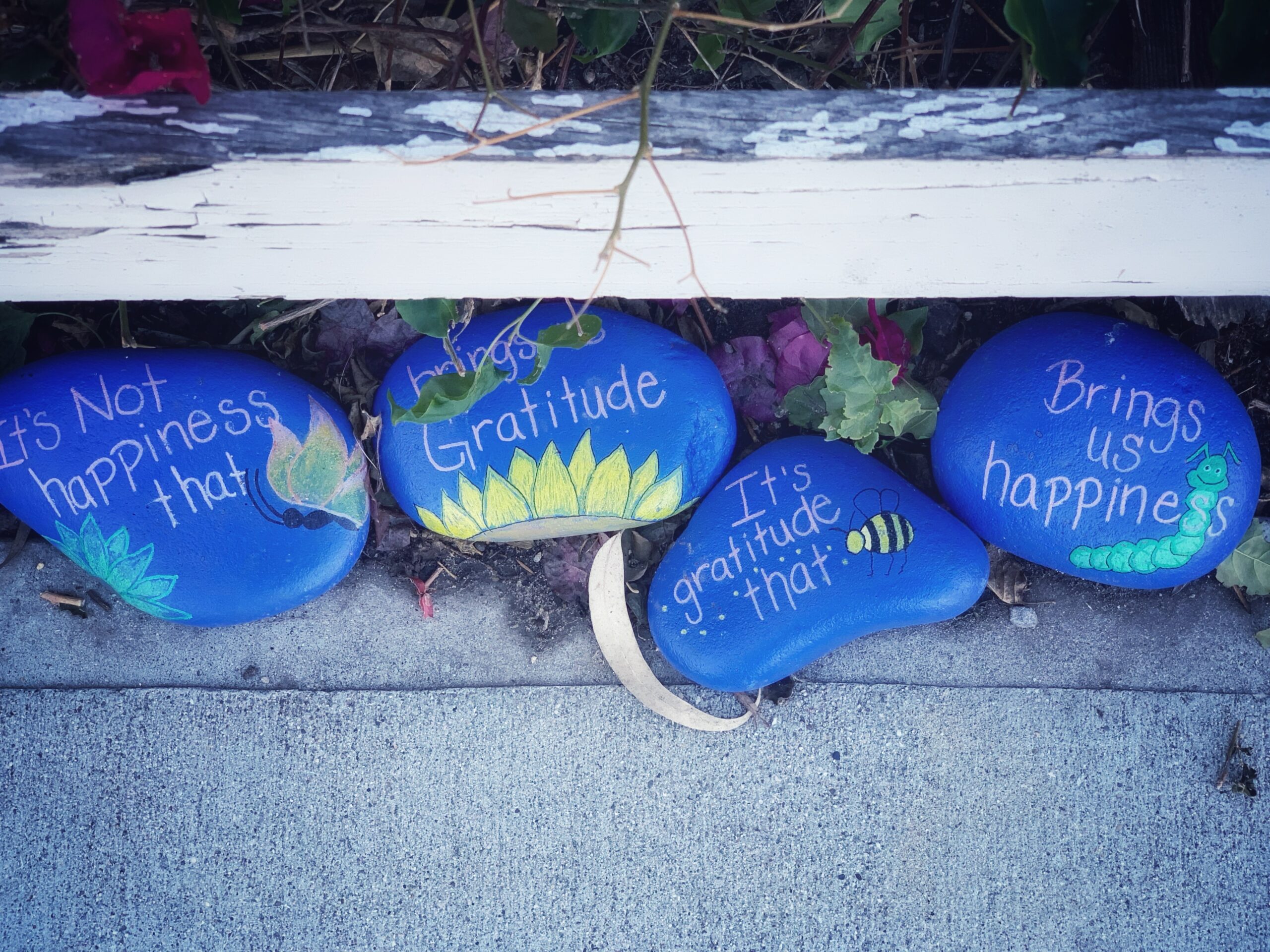
Sustained happiness refers to a long-lasting, enduring state of well-being and contentment. It goes beyond temporary or fleeting moments of joy and pleasure. It implies a deeper and more stable sense of satisfaction with life, often characterized by positive emotions, a sense of purpose, and overall life satisfaction.
I have never viewed happiness as a destination and I’m not religious. In fact, my belief in a higher power is tenuous at best. I’m also a death doula, working with and among dying people just about every day.
And yet, foundationally, I’m one of the happiest people I know.
How can this be?
Well, for starters, I pay attention. For as long as I can remember, I’ve observed people and, if they’re doing something that makes them miserable, I make a mental note to avoid doing that myself. And vice versa.
As an end-of-life doula, I listen closely to my clients and observe what works and what doesn’t. What haunts people at the end? What provides comfort?
I’d submit that those of us who contemplate our mortality on a daily basis can teach others a great deal about this topic.
So here goes.
What Won’t Make You Happy
First, let’s dispel some myths. People often have misconceptions about what will make them truly happy. The data is unambiguous. These common beliefs or pursuits don’t lead to lasting happiness.
Material Wealth
While financial stability is important, the pursuit of excessive wealth and material possessions beyond one’s basic needs won’t make you happy. The “hedonic treadmill” suggests that people quickly adapt to improved circumstances and return to their baseline level of happiness.
Sorry, Elon Musk.
External Validation
Seeking constant approval and validation from others is a recipe for misery. Relying on external sources for one’s sense of self-worth is fleeting, as opinions and circumstances change. Stop being a people-pleaser!
“To thine own self be true, and it must follow, as the night the day, thou canst not then be false to any man.” Shakespeare, y’all. Put that on your refrigerator.
Success and Achievement
Achieving goals and success is fulfilling, but if the pursuit of success becomes an obsession or if you constantly raise the bar for achievement, it will lead to a perpetual cycle of discontent.
Perfectionism
Striving for perfection in yourself or your life is exhausting and counterproductive. Accept your imperfections (and others’!) Finding contentment in the journey is more fulfilling than chasing an unattainable ideal.
Comparison with Others
Comparing yourself to others, especially through the lens of social media, fosters feelings of inadequacy. Each person’s journey is unique, and happiness is subjective.
“If you compare yourself with others you will become vain or bitter, for always there will be greater and lesser persons than yourself.” Desiderata, y’all. Put that on your refrigerator, too.
Future Happiness Fallacy
Some people believe that they will be happy once a specific event or milestone occurs (e.g., getting a promotion, getting married, or achieving a particular goal). Wrong!
Enduring happiness is a state of mind, cultivated in the present moment.
Avoidance of Negative Emotions
Happy people like me get pissed off and salty – a lot. Ask my family! I’ve been known to indulge my dark side and mumble about how “I hate everyone.” It happens.
Trying to avoid negative emotions at all costs only leads to suppression, which has a detrimental effect on mental well-being. Accepting and processing emotions is crucial for your overall happiness.
Constant Busyness
The belief that being constantly busy and productive will bring happiness leads to burnout. Take time for relaxation, leisure, and self-care.
What I Do To Achieve Sustained Happiness
First of all, I don’t deny death. It’s a reality: no one gets out of here alive. So the first step in achieving sustained happiness, for me, means:
- trusting myself,
- letting go of expectations and attachments,
- being open to whatever is supposed to happen,
- and accepting the impermanent nature of life.
It’s not brain surgery, and everyone is capable of this mindset. I’m not extraordinary. I was abandoned at 14 by an alcoholic father. I also have a learning disability, a sluggish thyroid, and asymmetrical eyebrows.
If I can do this, anyone can. It just takes some work.
Here are specific ways I achieve and maintain sustained happiness.
Meaning and Purpose
My sense of meaning and purpose in life contributes significantly to sustained happiness. This involves pursuing goals linked to the well-being of others and engaging in activities that bring fulfillment.
Donate your precious time, as much as you can, to those in need.
Healthy Relationships
I eliminated toxic relationships with both relatives and lifelong friends. This isn’t easy, but I’ve learned that positive and supportive connections with family, friends, and my community contribute to long-term happiness. I had to let the rest of them go.
A healthy support system is a vital component of well-being. This doesn’t mean you have to hate anyone. Quite the opposite. “Just because you lost me as a friend, doesn’t mean you gained me as an enemy. I’m bigger than that, I still wanna see you eat, just not at my table.”
Tupac, y’all. Put that on your refrigerator, too.
Physical and Mental Well-Being
Somewhere my kids are saying, “I’ve got MOM BINGO.” But this is the truth: Taking care of my physical and mental health is crucial. Regular exercise, a balanced diet, drinking plenty of water, and adequate sleep all play a role.
Prioritize. Self. Care. Come up with a plan today.

Gratitude
I cultivate a sense of gratitude for what I have rather than focusing on what I lack. Consider all the things for which you’re grateful. Write them down in a journal or think deeply about them every night before bed.
Adaptability
When my kids were born, I planned on breastfeeding them for at least a year. Five months in, they started rejecting my milk and needed something else. While crying to my parents about this, my stepdad said, “Just adjust.”
A very simple piece of advice that works. I’ve been following it ever since.
Adapting to life’s challenges and setbacks with resilience and a positive attitude is the best way to go through life. Sometimes, we must see things as they are, not how we want them to be. This is especially true when dealing with things we cannot change. It isn’t the circumstance that brings on suffering, it’s our resistance.
Learn and Grow
I routinely practice cultivating a growth mindset by embracing challenges and viewing failures as learning opportunities. This includes seeking opportunities for personal and professional development.
Get a library card. Stay curious and open-minded. You will feel the positive and happy chemicals moving around inside you more often.
Don’t believe me? Yale’s most popular class, The Science of Well-Being, is free and available online. It’s an amazing program, that uses scientific data, and shows what we know about meaningful happiness. Give it a try.
Practice Mindfulness
I don’t do this nearly as often as I should, but whenever I use mindfulness practices, such as meditation or deep-breathing exercises, I am happier. It reminds me to stay present in the moment, appreciating and fully experiencing whatever comes my way.
I do this when enjoying my morning cup of coffee or a piece of dark chocolate every night. Not all rituals have to be religious or complicated! What brings you joy that you can savor and appreciate?
If you struggle with meditation, join my class in February at End-Of-Life Psychedelic Care. We’ll hook you up!
Manage Stress
It took years, but I’ve cultivated quality and effective stress management strategies that work. This includes time management, relaxation techniques, yoga, or seeking support when needed. I’ve come a long way from the days when my boys were toddlers and I’d excuse myself to go scream into a pillow.
Find healthy outlets for stress that work for you, such as physical activity or creative expression.
Forgive
Yes, forgive them. All of them. Did you know that in some cultures “forgive” and “freedom” is the same word? That makes sense, right?
Forgiveness is a gift we give ourselves.
It’s bad juju to deny someone a solid comeback. So if somebody has done me wrong, and apologizes, I accept it. With an open heart. However, I don’t wait for that apology. I typically forgive them immediately and this helps the hurt or anger subside.
Then I wish them well. For me.

Mantras
I repeat the 5 Buddhist Remembrances every day.
- I am of nature to grow old. There is no way to escape growing old.
- I am of nature to have ill health. There is no way to escape getting sick.
- I am of nature to die. There is no way to escape death.
- All that is dear to me and everyone I love is of the nature to change. There is no way to escape being separated from them.
- My actions are my only true belongings. I cannot escape the consequences of my actions. They are the ground upon which I stand.
If you have similar poems, prayers, or a short book (like Desiderata), repeating lines or mantras every day can cement their meaning into your being. Then it’s there, in your psyche, when you need it most.
Seek Professional Support
There have been several times in my life when I’ve needed a therapist. If you’re struggling with mental health issues, don’t hesitate to seek professional help from therapists, counselors, death doulas, or support groups. You’re not alone.
Sustained Happiness is An Act of Rebellion
If I leave you with anything, I hope that it’s this: happiness and success are self-bestowed.
When the world sends you so many negative messages (work, consume, you’re not worthy, deny death, work, consume some more) a mindset of sustained happiness is power. We may not be able to control what happens to us, but we can control how we respond.
Happiness is a complex and individual experience. A militant and badass response.
It’s also punk as fuck.
You heard me.
But hey, what brings me joy and fulfillment may not vibe with you, so take what you will from this list above and discard the rest.
Remember that sustained happiness is a journey, and it’s okay to seek help and make adjustments along the way. It’s about creating a lifestyle that supports your overall well-being and allows you to navigate life’s challenges with resilience and positivity.
Peace.




Recent Comments